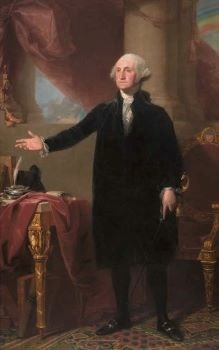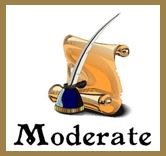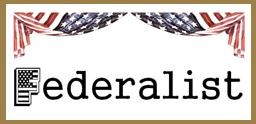Last updated: September 21, 2020
Article
Whiskey Rebellion: Answers to Question 6.

If you answered:
A). Negotiate with us. Let’s try and figure out how to end the unrest. That was the Moderate opinion.
B). Leave us alone. We don’t need you and you never helped us anyhow. That was the Rebel opinion.
C). Enforce the law. Even if you need to send in the federal troops. That was the Federalist opinion.

The rebels were hoping to solidify their cause at the upcoming meeting at Parkinson’s Ferry on August 14. They raised liberty poles, calling for the people to revolt against tyranny. At any suggestion that the federal army might be called to the area they espouse armed resistance. Tom the Tinker persisted in his threats and destruction.

Many moderates got themselves elected as representatives at the Parkinson’s Ferry meeting. The large outdoor meeting included 226 delegates and an even larger crowd of observers with firearms. Resolves were presented and debated. Then, news arrived that federal commissioners, sent by President Washington, were in town to negotiate with the westerners.
A small group of men met with the federal commissioners and found they were not flexible. They wanted total submission, in order to call off military action. However, they agreed to allow the citizens to vote on whether to support the law and pledge an oath of allegiance to the United States (which would give them amnesty) or vote against it.
The vote was held on September 11, 1794, with a clear majority of people voted to uphold the law. However, it was also plain some districts did not want to submit. The federal commissioner concluded the tax could not be collected by the local authorities.

As news of the attack on Bower Hill and other unrest reached the administration, President Washington was determined to use any legal means to end the rebellion. He sends the federal commissioners to western Pennsylvanian to negotiate. At the same time, Hamilton outlined a military expedition.
Washington became convinced there would be no peaceful solution. Before he had received even a preliminary report from the federal commissioners Washington called out the militia from Pennsylvania, New Jersey, Maryland and Virginia. With 12,950 men it was a large army.
The peace negotiations were a sham, a political move to make it appear that everything had been tried before resorting to arms.
